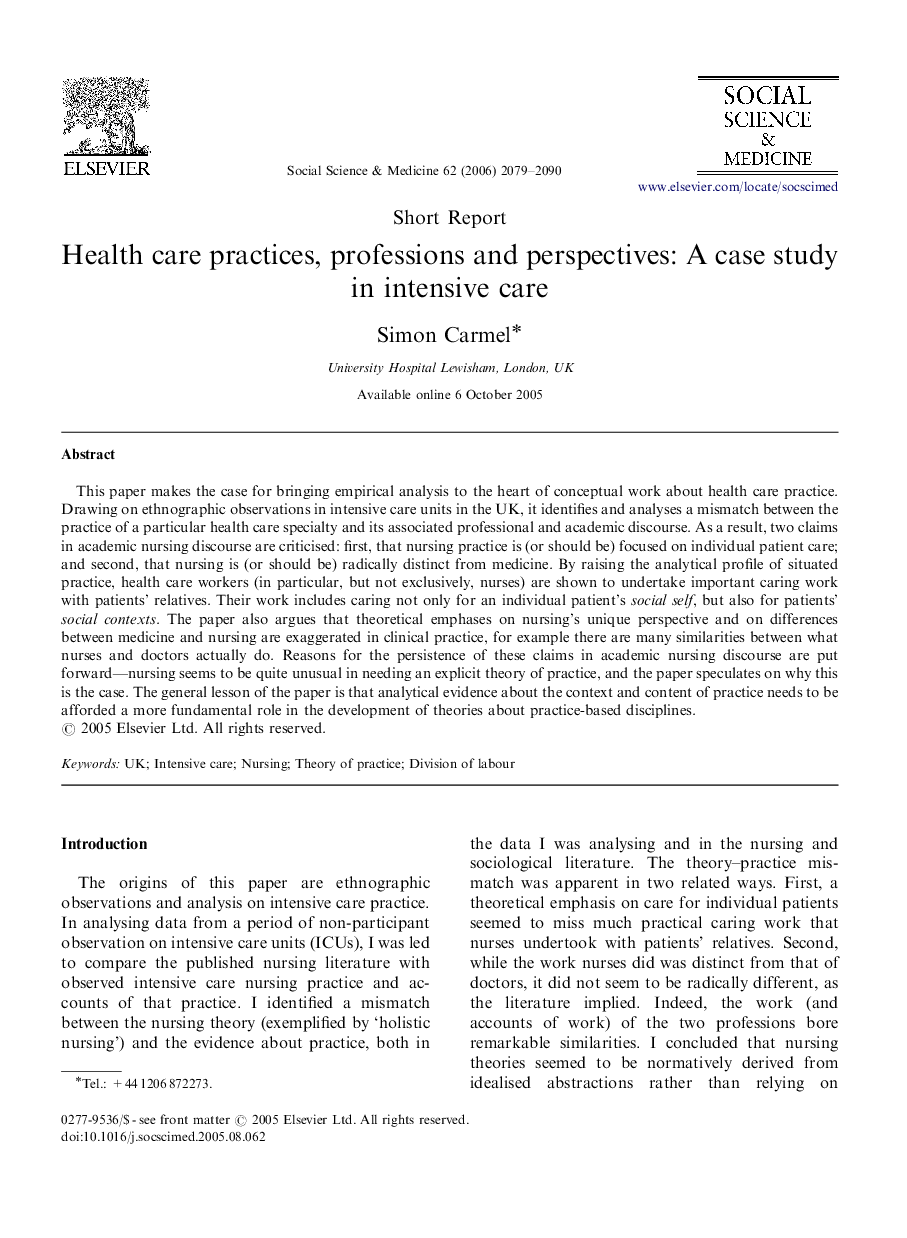| Article ID | Journal | Published Year | Pages | File Type |
|---|---|---|---|---|
| 954495 | Social Science & Medicine | 2006 | 12 Pages |
This paper makes the case for bringing empirical analysis to the heart of conceptual work about health care practice. Drawing on ethnographic observations in intensive care units in the UK, it identifies and analyses a mismatch between the practice of a particular health care specialty and its associated professional and academic discourse. As a result, two claims in academic nursing discourse are criticised: first, that nursing practice is (or should be) focused on individual patient care; and second, that nursing is (or should be) radically distinct from medicine. By raising the analytical profile of situated practice, health care workers (in particular, but not exclusively, nurses) are shown to undertake important caring work with patients’ relatives. Their work includes caring not only for an individual patient's social self, but also for patients’ social contexts. The paper also argues that theoretical emphases on nursing's unique perspective and on differences between medicine and nursing are exaggerated in clinical practice, for example there are many similarities between what nurses and doctors actually do. Reasons for the persistence of these claims in academic nursing discourse are put forward—nursing seems to be quite unusual in needing an explicit theory of practice, and the paper speculates on why this is the case. The general lesson of the paper is that analytical evidence about the context and content of practice needs to be afforded a more fundamental role in the development of theories about practice-based disciplines.
